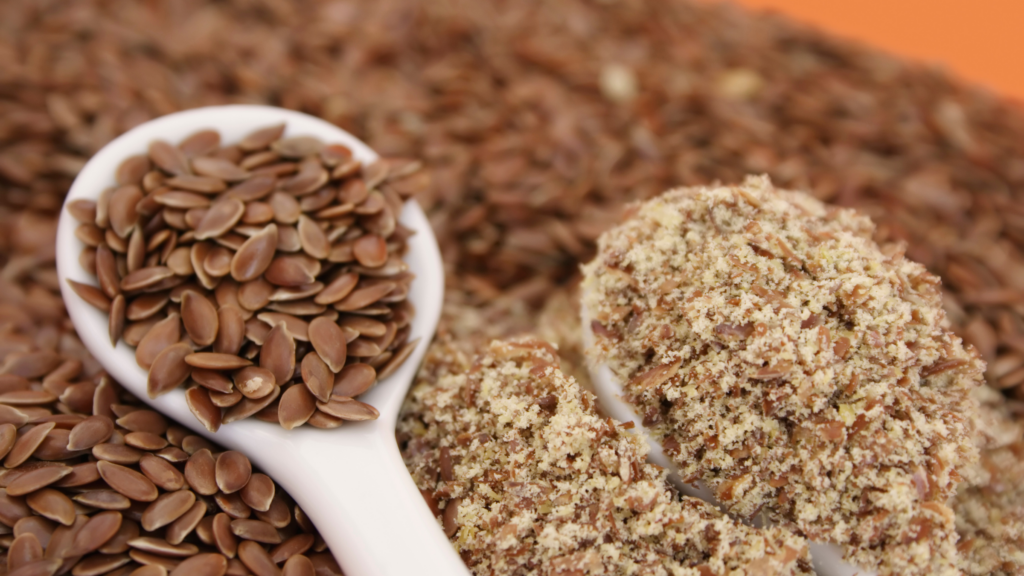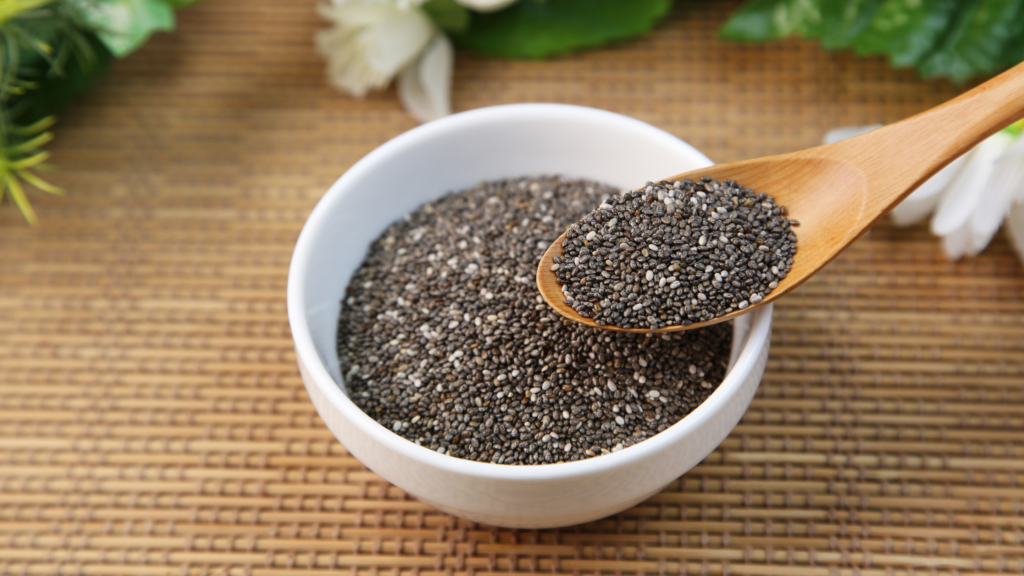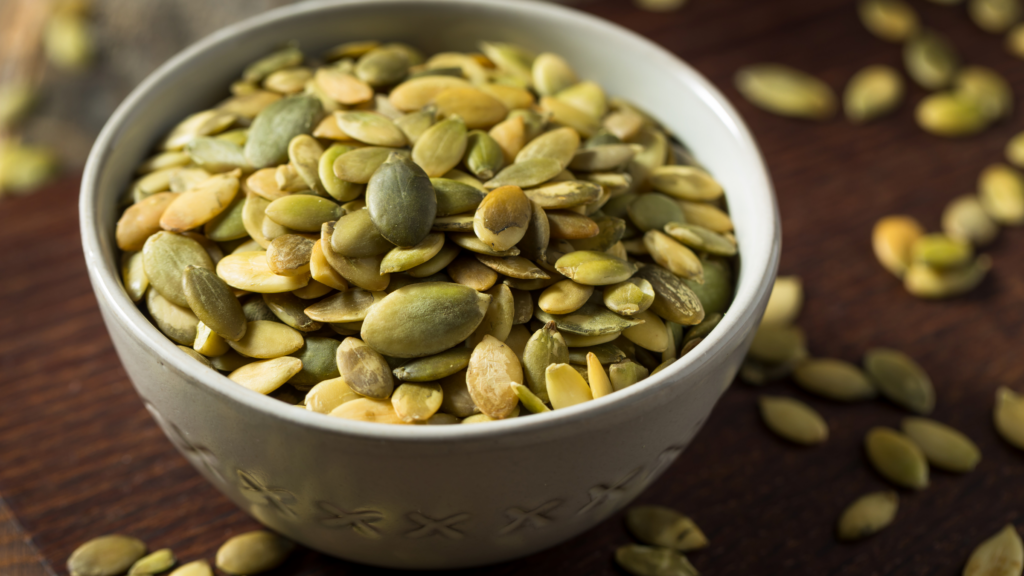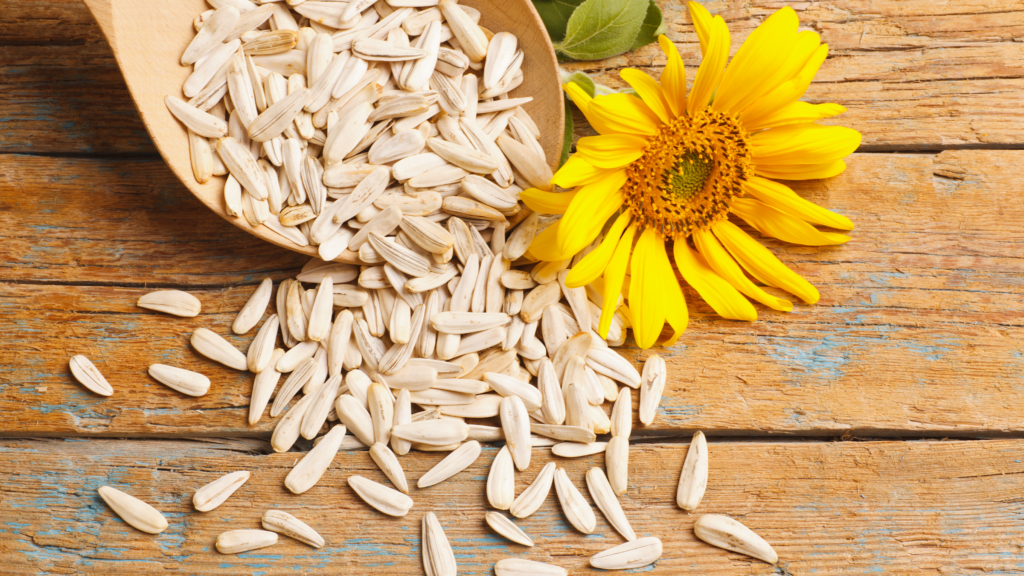Should You Be Eating More Seeds?

Different types of seeds on spoons. (Photo: PaintedWorks, Getty)
Seeds may be small, but they carry a surprising amount of nutrients underneath their hard exteriors. They pack quite a lot of benefits inside, delivering healthy fats and fiber in each bite. Different varieties of seeds can offer everything from bone-strengthening calcium to brain-boosting magnesium to cell-repairing phosphorus. And those are just a few of the vitamins and minerals you’ll get each time you incorporate seeds into your diet.
What else can seeds do for you? Here are some of the health benefits you’ll enjoy each time you eat seeds.
Seeds offer a high dose of critical nutrients
Don’t let seeds fool you – they’re small, but they offer an impressive bang for your buck when it comes to nutrients. They’re nutrient-dense and feature some of the same nutritional benefits as nuts.
In a single handful of seeds, you’ll get protein, minerals and vitamins. Generally speaking, most seeds include iron, magnesium, calcium and phosphorus. Many offer a good serving of healthy fats too.
Different types also contain even more varied vitamins and minerals. Sunflower seeds, for example, contain vitamin E and B vitamins. Sesame seeds are high in selenium, which is an antioxidant. Together, all of these critically important nutrients can help you ensure you’re sticking to a well-balanced diet.
Seeds can help you manage cholesterol and blood pressure
Eating seeds regularly can also improve your heart health. High cholesterol and high blood pressure can lead to an increased risk for cardiovascular disease. However, research shows that seeds may be able to combat both of these contributing factors.
A study published in Circulation discovered that increasing your consumption of seeds as part of a healthy diet that also includes nuts, legumes, and whole grains has a positive effect on heart health. Researchers found that the soluble fiber, unsaturated fatty acids, and phytosterols in particular are what create the potential to reduce cholesterol levels and high blood pressure. And, because they’re plant-based, they can also lower your overall risk for cardiovascular disease.
Additionally, certain varieties also include phytosterols, which are plant compounds. Phytosterols are especially helpful if you’re trying to manage your cholesterol. When included in an overall healthy diet, phytosterols can lower LDL cholesterol – or “bad” cholesterol – by as much as 14 percent and lower overall cholesterol by as much as 10 percent. Pepitas and flaxseeds in particular feature phytosterols that can help lower your cholesterol and even potentially your blood pressure.
Reduce inflammation
Inflammation can introduce all kinds of health problems, especially if you’re experiencing it over the long-term. However, whether you’re living with an inflammatory condition or looking to reduce inflammation generally, seeds could be a key ally.
Seeds are such a great choice for reducing inflammation because they contain just the right vitamins, minerals and antioxidants. As The Arthritis Foundation explains, seeds can offer a high dose of alpha linoleic acid (ALA), which is an anti-inflammatory omega-3 fatty acid.
Sesame seeds in particular are fantastic for combating inflammation. Research shows that individuals with knee osteoarthritis had lower levels of inflammation after eating sesame seed powder daily; you may get the same benefit by sprinkling it into your recipes.
Flaxseed and chia are two more powerful options for inflammation, as both contain plenty of ALA. In fact, they have three times the ALA of some nuts like walnuts. You can mix both of these into all kinds of smoothies, puddings, and other dishes to get their full benefits.
Feel fuller for longer
Seeds are a highly filling source of dietary fiber. Fiber is a necessity for keeping your digestive system running smoothing, but it can also lessen feelings of hunger throughout the day. Incorporating seeds into meals and snacks can help you stay fuller for longer, leaving you better satiated.
The fiber hidden inside various varieties helps your body absorb nutrients more easily too, which is especially beneficial. Seeds contain so many vitamins and minerals that can work wonders for your health as a whole, and their fiber content can ensure you’re naturally taking in as much as possible.
Seeds can also ensure you easily meet your recommended daily amount of fiber. Just one ounce of chia seeds, for example, contains approximately 10 grams of fiber. An ounce of sunflower seeds will net you three grams of fiber. Different varieties will have different fiber content, but they’re generally high across the board.
The best seeds to try
Wondering where to start when it comes to seeds? Here are a few great options to try.

Flaxseed: Flaxseed is packed with fiber and protein, two nutrients that’ll fill you up in just the right way. It’s also a powerhouse when it comes to antioxidants, which is ideal for combating inflammation.

Chia seeds: Chia seeds are high in omega-3 fatty acids and fiber; they offer a lot of protein and a few essential minerals too. They’re an all-around excellent choice and offer some of the most well-rounded health benefits. You can use chia seeds in a chia berry pudding.

Pumpkin seeds: Don’t relegate pumpkin seeds, or pepitas, to the fall season alone. With a wealth of minerals – like zinc and magnesium – pepitas can benefit your heart and your stress levels. Try using them in this Honey-Glazed Tofu with Pumpkin Seed Couscous recipe or mix them into a salad.

Sunflower seeds: When you eat sunflower seeds, you’re getting B vitamins, vitamin E, selenium and other antioxidants in every bite. Those antioxidants work hard to reduce your risk for certain health conditions linked to free radicals, like diabetes and heart disease. Incorporate sunflower seeds into greens blend them into a pesto sauce for pasta.
From Clean Eating